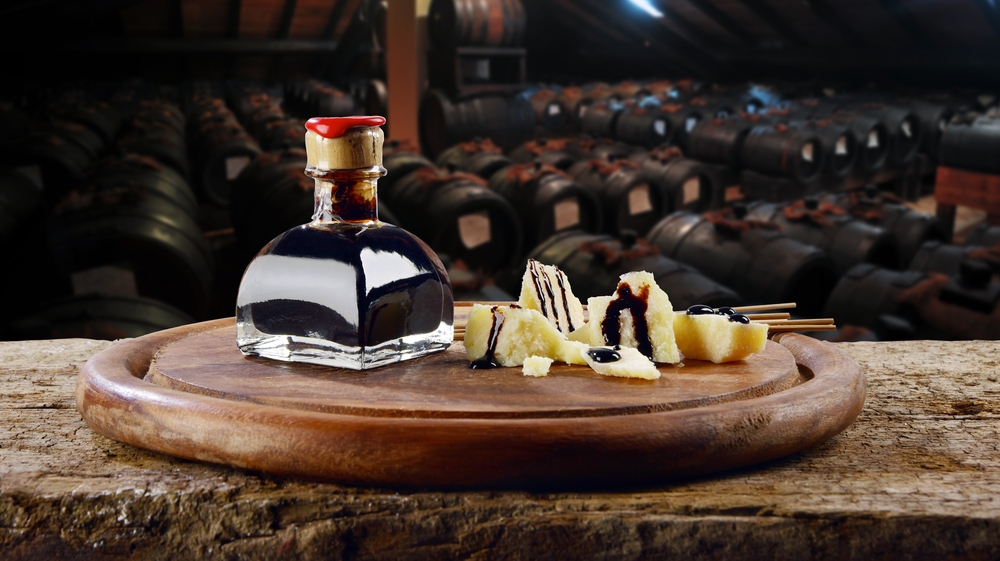Most balsamic vinegars aren’t what you think.

The protection of local food specialities is not always simple.
The European Union has a couple of labels to help protect certain food products from dilution or counterfeit. But those protections have to be earned, and one of the most widespread theoretically local European food products—balsamic vinegar—just failed to earn its own.
These rules, usually known as Protected Designation of Origin, or PDO, restrict the branding of certain products to places that have made a compelling argument as the creators of those products. You can make an anise-flavored liquor, but if it’s made outside Greece, it can’t be called ouzo. Restrictions apply to champagne, prosciutto di parma, roquefort, and many other products.
Balsamic vinegar is an interesting applicant to be protected, for a few reasons. As a matter of fact, the terms “Aceto balsamico di Modena” and “di Reggio Emilia” are already both protected by the EU. But the word “balsamic,” and the phrase “balsamic vinegar,” is not; if you don’t include the words Modena or Reggio Emilia, you’re free to call a German product “balsamic vinegar.”
And that’s exactly what happened. The Consortium for Balsamic Vinegar of Modena sued a German company called Balema for advertising its German-made “balsamico” and “Deutscher balsamico,” or German balsamic. But an EU court ruled this week that the protections of the place-based vinegar do not extend to the word “balsamic.” The ruling called the word balsamic “a common term.”
The word “balsamic” is a semi-antiquated adjective, meaning “to soothe” or “to heal.” The EU court said that the regions of Modena and Reggio Emilia could not command ownership of that term as it relates to vinegar, that “balsamic vinegar” is by now a generic descriptor referring to dark, sweet-and-sour vinegars.
The stuff the consortium wants to protect is highly prized and expensive; it’s a thick, rich vinegar that’s aged for over a decade and must be made from very particular Italian grapes. The stuff you get on your salad at Chopt is not this; it’s most likely some kind of cheap white, red wine, or rice vinegar with sugar, colorings, and flavorings added. The idea that this cheap stuff is associated with the Modena vinegar has long rankled vinegar-heads.
But at least for now, the term “balsamic vinegar” is available for use by anyone wanting to sell their vinegars. “We consider this decision to be totally unjust,” said the president of the consortium.